Teacher reputations don’t always reflect reality in classroom
English teacher David Sampselle grading student’s presentation
January 12, 2016
You hear about their antics from your older siblings; they have struck fear into the hearts of many. No, they aren’t monsters, or warlords. They’re teachers!
Everyone knows the feeling: you get your schedule for the first time, and you see that one dreaded name.
“Oh no! I have Sampselle!” you say as you shiver nervously. The things you’ve heard about him are bone-chilling. He’s supposed to be the toughest English teacher in the school. But, is he really?
“I think that [a lot of] students, when they’re asked what I’m like, they always exaggerate and make [my class] sound worse than it might be,” English teacher David Sampselle said. “[My] reputation is that I give out a lot of work, and I grade it very difficultly.”
“I heard [Sampselle] was kind of like the male version of [retired English teacher Audrey] Starr, [and that] he was a strict grader,” sophomore Anna Nguyen said.
“I heard he was a good teacher. I just heard he was sarcastic, but chill,” sophomore Muhammad Ba added.
However, teacher’s actual personalities don’t always match up with their reputations.
“I get the impression that students that don’t know me are scared to death [of me], until they get into the class,” Sampselle said. “[But], after they’ve been in the class a week or so, it’s all pretty normal then.
After getting through the first couple of weeks of class Nguyen realized that the rumors were not completely accurate. “He’s not that strict when grading at all,” Nguyen said. “He’s awesome.”
Many students hear their older siblings’ opinions of teachers and automatically make assumptions about their personalities. But, like students, teachers grow and learn from year to year.
“I give students surveys at the end of every semester, and a few years ago, some of my AP students wrote that they never saw me smile,” AP government teacher Michelle Pettit said. “That made me very sad on the inside.”
From then on, Pettit said that she tries to show students that she’s not always so serious — by being playful when appropriate. “I want students to know that I don’t mess around, but I also want them to know I’m human and I have a heart,” Pettit said.
“I get the impression that kids think I’m harder and less caring, where I think the opposite is true,” Sampselle added.
Although teachers’ personalities may not always reflect their reputations, their students’ perception of them does affect the way the kids act in class.
“Since I heard [Sampselle] was like chill, the way I act in that class is not the way I would act in Ms. Pettit’s class,” Ba said. “He’s chill; so I’m more open.”
“In general [my students] treat me the same… [but] the sophomores seem to be more comfortable [with me],” Sampselle added. “The seniors are worried most about their grade and graduating.”
At the end of the day, regardless of their reputations, both Sampselle and Pettit agree–they want you to walk away from their classes, feeling like you’ve learned something.
“Over the years, [I think], students have learned that I’m hard on them because I care…. [and if anything], I hope they all vote when they turn 18,” Pettit said.
“It really pains me and hurts me when I have to give a student a low grade,” Sampselle added. “But, I want them to get a realistic idea of how they’re actually doing compared to their competition.”
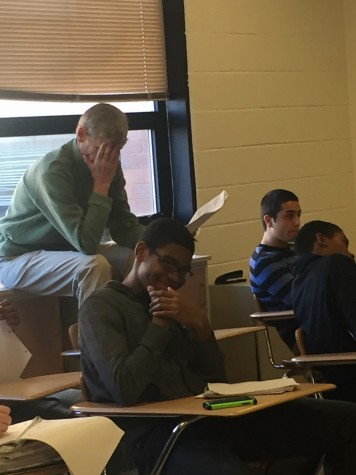
English teacher David Sampselle face palms during a presentation



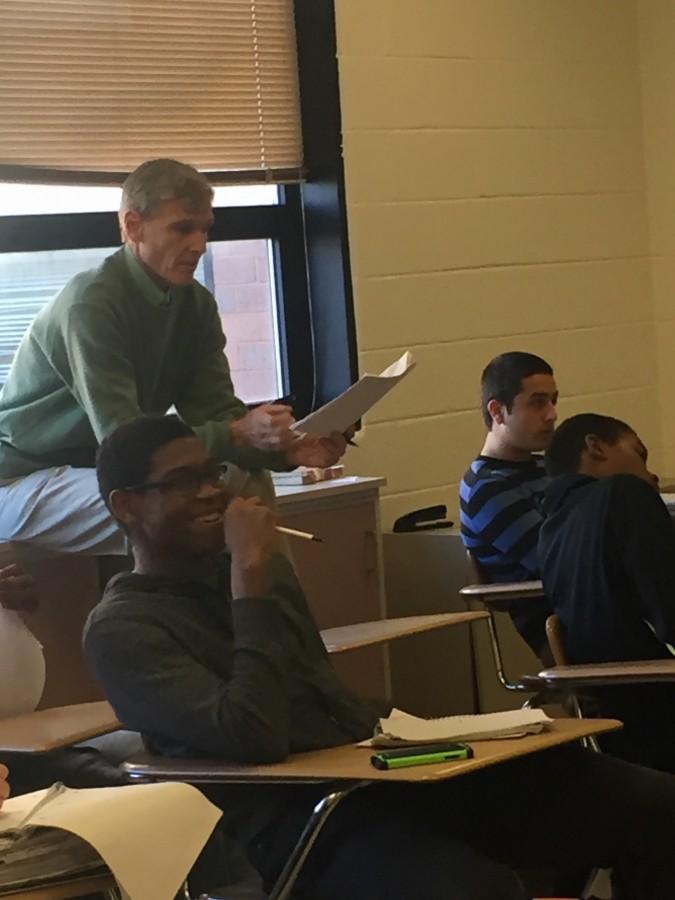

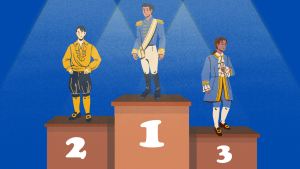


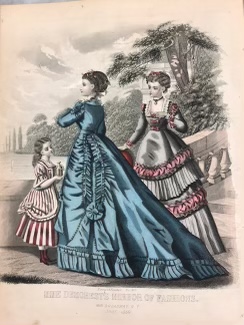
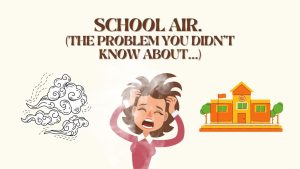
Courtney Quinn Jones • Nov 10, 2017 at 8:52 am
I had Mr. Sampselle at Gaithersburg High School, back in the late 70’s, and he had the same reputation then. I thought he was amazing,, and I still use so much of what he taught us. He may be tough, but it only benefits the students in the long run!
Donald Grim • Sep 9, 2017 at 4:30 pm
David Sampselle was one of my favorite teachers. He hasn’t changed since 1979!